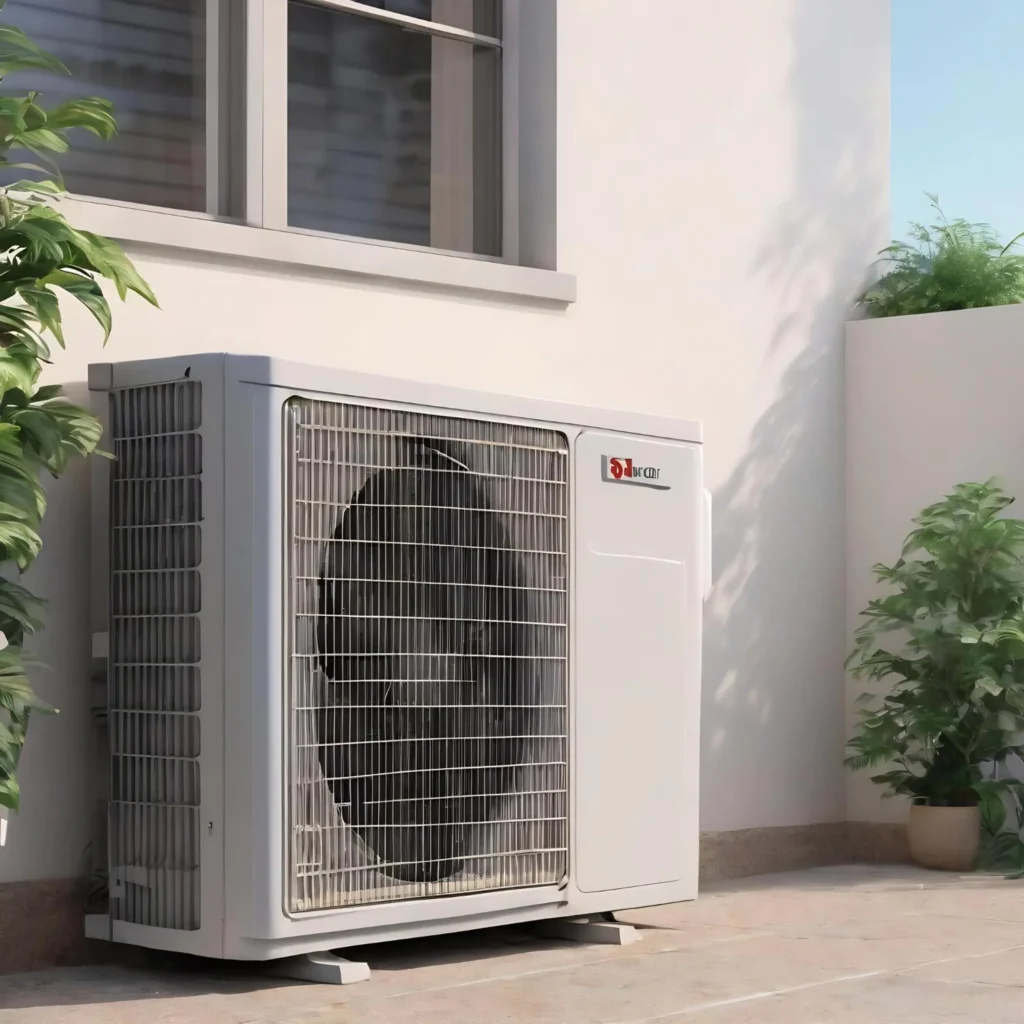Houston DIY enthusiasts! Ready to take your AC unit maintenance into your own hands? Look no further! In our step-by-step guide, we’ll walk you through DIY cleaning AC unit, ensuring cleaner air and better performance for your home.
Say goodbye to dusty filters and inefficient cooling – with our easy-to-follow instructions, you’ll be on your way to a happier, healthier HVAC system in no time. So, grab your gloves, and let’s transform your AC unit from drab to fab!
Table of Contents
Learn How To Clean Your air conditioning unit by yourself
Are you tired of sweating through scorching summers or shivering through chilly winters because your air conditioner just can’t keep up? It might not be the unit’s fault entirely. No matter how hard it tries, a dirty AC can’t perform at its best.
But fear not! With some DIY cleaning magic, you can revive your AC and enjoy cool, crisp air all year round. Let’s dive into the world of DIY cleaning AC units and discover why it’s essential and how to do it right.
Why is it important to clean your air conditioner regularly?
1. Performance and efficiency
Think of your air conditioner as a superhero, tirelessly battling the heat (or cold) to keep you comfortable. But even superheroes need a little TLC now and then. When your AC’s filters and coils are clogged with dirt, dust, and debris, it’s like asking Superman to fight crime wearing a lead suit. It’s just not going to end well.
By regularly DIY Cleaning AC Unit, you’re ensuring it can work at its full potential, cooling (or heating) your space efficiently without wasting energy or straining itself.
2. Indoor air quality
Close your eyes and take a deep breath. Can you smell that? If your AC hasn’t been cleaned in a while, that musty, dusty odor is probably coming from your vents. Over time, allergens, pollutants, and even mold can build up in your AC unit, circulating through your home every time you turn it on.
Not exactly the fresh, clean air you were hoping for, right? Regular DIY Cleaning AC Unit keeps your AC running smoothly and improves indoor air quality, making your home a healthier and more comfortable place to be.
3. Costly power bills and price of repairs
Let’s talk about everyone’s favorite topic: money. A dirty AC doesn’t just cost you comfort; it also hits you where it hurts the most: your wallet. When your unit is clogged with dirt and grime, it has to work harder to cool (or heat) your space, which means higher energy bills for you.
Plus, neglecting maintenance can lead to costly repairs down the road. By taking the time to clean your AC regularly, you’re not only saving money on your monthly bills but also prolonging the lifespan of your unit and avoiding expensive repairs.
How to Clean a Window Air Conditioner?

Cleaning a window AC unit might seem daunting, but fear not! With the right approach, it’s a manageable feat. Here’s a step-by-step guide to help you get started:
- Power Off: Before you begin, turn off the power to your window AC unit and unplug it from the electrical outlet for safety.
- Remove Filter: Most window AC units have a removable filter. Take it out carefully and give it a thorough cleaning. You can use a vacuum cleaner or wash it with soap and water.
- Clean Interior: Use a soft brush or vacuum to remove any dust and debris from the interior components of the AC unit, including the coils and fan blades.
- Clean Exterior: Wipe down the unit’s exterior with a damp cloth to remove dirt or grime buildup.
- Reassemble: Once everything is clean and dry, reassemble the unit and plug it back in.
And there you have it!
Your window AC unit is now clean and ready to keep you cool and comfortable.
How to Clean an Outside AC Unit?
DIY Cleaning AC Unit – The outside AC unit is essential for maintaining optimal performance and efficiency. Here’s how to do it:
- Power Off: As always, safety first! Make sure the power to the outside AC unit is turned off before you begin cleaning.
- Remove Debris: Clear away leaves, twigs, or other debris around the unit to ensure proper airflow.
- Clean Fins: Carefully clean the fins of the outside unit using a soft brush or vacuum cleaner. Be gentle to avoid bending the fins.
- Clean Coils: Use a coil cleaner or a mixture of mild detergent and water to clean the coils of the outside unit. Rinse thoroughly with water afterward.
- Inspect and Reassemble: Once everything is clean, inspect the unit for any signs of damage or wear and tear. Then, reassemble the unit and restore power.
Regular DIY Cleaning AC Unit and maintenance will keep your outside AC unit cool and comfortable for years to come.
FAQs About DIY Cleaning AC Unit in Houston
How Do I Get Rid of Mold in My Air Conditioner?
Mold in your air conditioner can be a pesky problem, but fear not – it’s manageable with the right approach. Here’s what you can do:
- Mix a Cleaning Solution: Create a mixture of equal parts water and white vinegar in a spray bottle.
- Spritz Affected Areas: Thoroughly spritz the areas of your air conditioner where mold is present.
- Let it Sit: Allow the cleaning solution to penetrate the mold for a few minutes.
- Wipe Away Mold: After letting the solution sit, use a damp cloth to remove the mold from the surface.
- Repeat as Needed: For stubborn mold, you may need to repeat the process multiple times until the mold is completely removed.
- Prevent Future Mold Growth: To prevent mold from returning, ensure your air conditioner is appropriately cleaned and maintained regularly, and keep the area around the unit clean and dry.
What Can You Use to Clean the AC Coil?
DIY Cleaning AC Unit – The AC coil is essential for maintaining optimal performance and efficiency.
Here are some options for cleaning the AC coil:
- Commercial Coil Cleaner: You can purchase a commercial coil cleaner from your local hardware store. Follow the manufacturer’s instructions carefully when using these products.
- DIY Cleaning Solution: Alternatively, you can create your cleaning solution using mild detergent and warm water. Mix the detergent with water in a spray bottle onto the coils. Allow it to sit for a few minutes, then rinse thoroughly with water.
Whichever method you choose, clean the AC coil regularly to keep your air conditioner running smoothly and efficiently.
How Often Should I Clean My Air Conditioner?
The frequency of DIY Cleaning AC Unit depends on several factors, including usage, environment, and the manufacturer’s recommendations. As a general guideline, it’s advisable to clean your air conditioner at least once a year, preferably before the start of the cooling season.
However, live in a particularly dusty or humid environment or notice signs of reduced performance. It may be necessary to clean your AC more frequently. Regular maintenance helps ensure optimal performance, energy efficiency, and longevity for your air conditioning unit.
How Do You Know If Your AC is Clogged?
Several signs indicate that your air conditioner may be clogged and in need of DIY Cleaning AC Unit:
- Reduced Airflow: If you notice a decrease in airflow from your vents, it could indicate a clogged air filter or blocked ductwork.
- Uneven Cooling: Uneven cooling throughout your home may suggest that your AC unit struggles to distribute air evenly due to blockages or restrictions.
- Strange Noises: Unusual noises such as rattling, buzzing, or banging could indicate that debris is interfering with the operation of your AC unit.
- Higher Energy Bills: A sudden increase in energy bills without a corresponding increase in usage could signal that your AC is working harder than usual due to blockages or clogs.
- Visible Debris: If you notice visible dirt, dust, or debris accumulating around your air conditioner or in the vents, it indicates that cleaning is overdue.
If you experience any of these signs, it’s essential to inspect and clean your air conditioner promptly to prevent further issues and maintain optimal performance.
Do You Need to Clean the Condenser Coil?
Yes, cleaning the condenser coil is crucial to air conditioner maintenance. The condenser coil plays a vital role in the cooling process, facilitating heat transfer from the indoor air to the outdoor environment.
Over time, the condenser coil can become coated with dirt, dust, and other debris, hindering its ability to release heat efficiently.
This can result in reduced cooling capacity, increased energy consumption, and potential damage to the compressor. Therefore, regular condenser coil cleaning is essential to ensure optimal performance and longevity for your air conditioning unit.
Can I Clean My AC Unit Myself?
Yes, you can clean your AC unit yourself, but taking proper precautions and following safety guidelines is essential. Before starting, please turn off the power to the unit and unplug it from the electrical outlet.
Additionally, familiarize yourself with the manufacturer’s instructions and recommendations for cleaning and maintenance. With the right tools and techniques, DIY Cleaning AC Unit can be a cost-effective way to maintain optimal performance and efficiency.
What Is the Best Thing to Clean Your AC Unit With?
When DIY Cleaning AC Unit, it’s essential to use gentle cleaning solutions and avoid harsh chemicals that could damage delicate components. For general cleaning, mild detergent and water effectively remove dirt, dust, and grime from surfaces.
Alternatively, you can use specialized AC coil cleaners or commercial DIY Cleaning AC Unit products specifically designed for air conditioning systems. Follow the manufacturer’s instructions and recommendations for safe and effective DIY Cleaning AC Unit.
Is It OK to Spray Water on Your Air Conditioner While Running?
No, spraying water on your air conditioner while it is running is not recommended. While operational, spraying water directly onto the unit can pose electrical hazards and potentially damage the components.
Before DIY Cleaning AC Unit, always turn off the power and unplug it from the electrical outlet to ensure safety.
Once the unit is powered off, you can use a gentle stream of water from a hose or spray bottle to rinse dirt and debris, avoiding sensitive components such as electrical connections and controls.
Can I Hose Off My Outside AC Unit?
Yes, you can rinse off your outside AC unit with a hose. However, it’s essential to do so carefully and avoid using high-pressure water streams that could damage delicate components.
Before hosing off the unit, make sure to turn off the power and unplug it from the electrical outlet for safety. Use a gentle stream of water to rinse away dirt, dust, and debris from the exterior of the unit, focusing on the condenser coils and fins.
Don’t bend or damage the fins, which could affect the unit’s performance. Once the unit is clean, allow it to dry entirely before restoring power and operation.
Regular hosing off the outside AC unit can help maintain optimal performance and efficiency.
Get Your Air Conditioning Unit Cleaned
Don’t wait until your air conditioning unit starts underperforming or breaks down entirely – take proactive steps to keep it clean and well-maintained. Regular DIY Cleaning AC Unit and maintenance can extend the lifespan of your AC unit, improve its performance, and ensure optimal energy efficiency.
Whether you tackle the DIY Cleaning AC Unit yourself or hire a professional service, investing in AC maintenance now can save you time, money, and hassle in the long run. For top-notch AC cleaning and maintenance services in Houston, TX, trust 75 Degree AC.
With years of experience and a commitment to customer satisfaction, we’re your go-to experts for all your air conditioning needs. Contact us today at (713)-598-2737 or 75degreeacservices@gmail.com to schedule an appointment. Let us help you keep your home cool and comfortable all year round.
